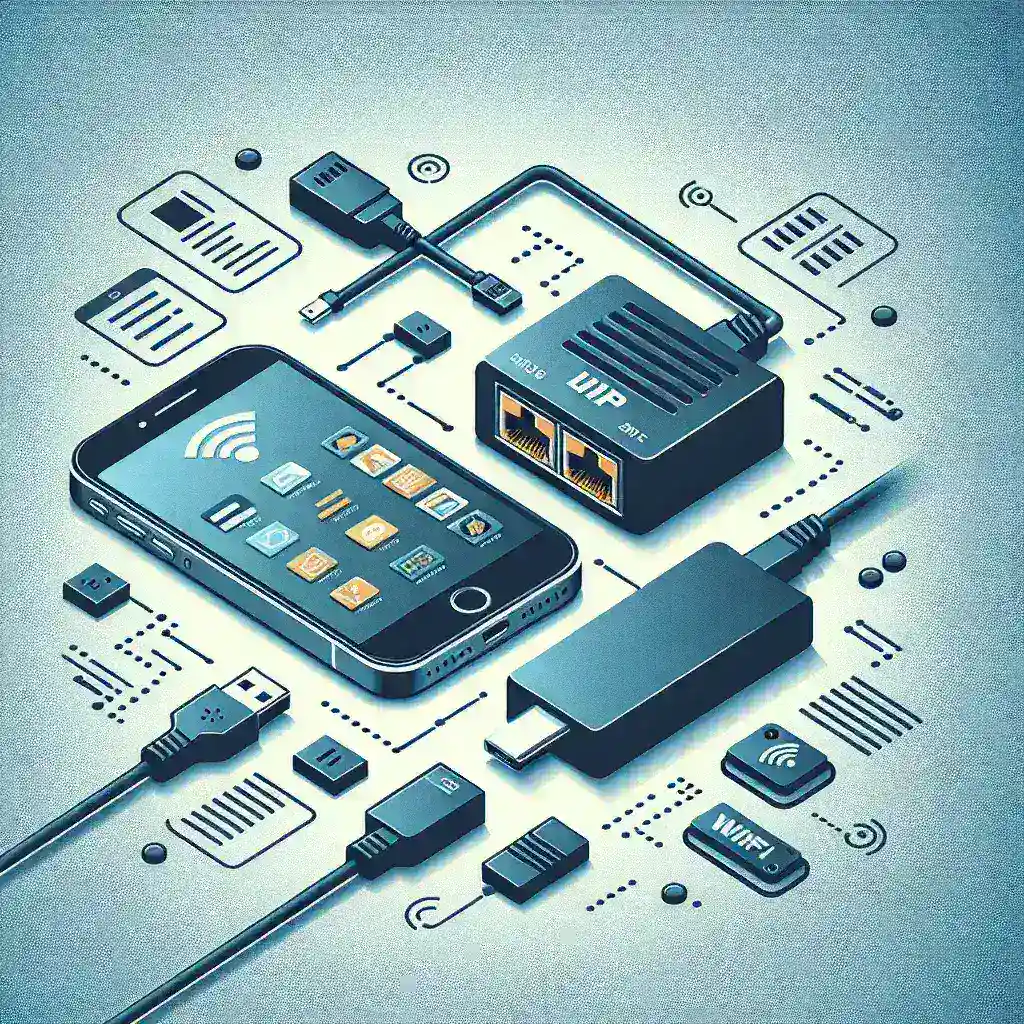In today’s digital age, connectivity is paramount. Whether for work or personal use, seamless Internet access has become a necessity. One often-asked question is whether a network adapter can be used with a mobile device to enhance connectivity. This article dives deep into this topic and explores the different aspects, including compatibility, types of network adapters, and the benefits they bring to mobile devices.
Understanding Network Adapters
Network adapters, also known as network interface controllers (NICs), are hardware components that enable devices to connect to a network. They are typically used in computers but have also found their way into mobile devices.
Types of Network Adapters
There are several types of network adapters, each serving a specific purpose:
- Ethernet Adapters: These provide wired Internet connections, usually via an RJ-45 connector.
- Wi-Fi Adapters: These enable wireless Internet access and are commonly integrated into modern devices.
- Bluetooth Adapters: Used for wireless communication over short distances, such as connecting peripherals.
- USB Network Adapters: These can be either wired or wireless and connect to devices via a USB port.
Types of Network Adapters
| Adapter Type | Description |
|---|---|
| Ethernet Adapters | Provide wired Internet connections via an RJ-45 connector |
| Wi-Fi Adapters | Enable wireless internet access |
| Bluetooth Adapters | Used for short-range wireless communication |
| USB Network Adapters | Can be wired or wireless, connect via USB |
Can You Use a Network Adapter with a Mobile Device?
The short answer is Yes, you can use a network adapter with a mobile device. However, the compatibility and use-case scenarios can vary based on several factors such as the mobile device’s operating system, available ports, and the type of network adapter you wish to use.
Compatibility Factors
Here are some of the elements that determine whether a network adapter can be used with a mobile device:
- Operating System: Different operating systems (iOS, Android, Windows Mobile) offer varying levels of support for external hardware.
- Ports: Some mobile devices have USB ports, while others may require adapters to connect USB devices.
- Drivers and Firmware: Some adapters may need specific drivers which may or may not be available for mobile operating systems.
Compatibility Factors
| Factor | Description |
|---|---|
| Operating System | Different levels of support for external hardware |
| Ports | Some devices have USB ports, others may need adapters |
| Drivers & Firmware | Specific drivers may be required |
Setting Up a Network Adapter with a Mobile Device
Setting up a network adapter with a mobile device can be straightforward if compatibility is confirmed. Here is a step-by-step guide:
- Step 1: Check Compatibility: Ensure that your mobile device supports the network adapter you intend to use.
- Step 2: Connect the Adapter: Plug the network adapter into the appropriate port (USB, USB-C, etc.) on your mobile device.
- Step 3: Install Necessary Drivers: If required, download and install the necessary drivers. This step is often omitted in modern mobile devices due to plug-and-play functionality.
- Step 4: Configure Network Settings: Go to the network settings on your mobile device and ensure the adapter is recognized and properly configured.
Setup Steps
- Check Compatibility
- Connect the Adapter
- Install Necessary Drivers
- Configure Network Settings
Following these steps should allow you to successfully use a network adapter with your mobile device.
Benefits of Using a Network Adapter with a Mobile Device
The advantages of using a network adapter with a mobile device are numerous:
- Enhanced Connectivity: Network adapters can provide faster and more reliable Internet connections.
- Versatility: Having a network adapter allows you to switch between wired and wireless networks as needed.
- Extended Device Life: Using a wired connection can help conserve battery life by reducing the load on your mobile device’s built-in wireless components.
Benefits Overview
| Benefit | Description |
|---|---|
| Enhanced Connectivity | Provides faster and more reliable internet connections |
| Versatility | Allows switching between wired and wireless networks |
| Extended Device Life | Conserves battery life by reducing wireless loads |
Challenges and Limitations
While using a network adapter with a mobile device offers numerous benefits, it also comes with its own set of challenges:
- Compatibility Issues: Not all network adapters are supported by all mobile devices.
- Additional Hardware: You may need extra adapters or cables, adding to the portability burden.
- Firmware Updates: Some network adapters may require updates that are not readily available for mobile devices.
Challenges Overview
| Challenge | Description |
|---|---|
| Compatibility Issues | Not all adapters are supported by all devices |
| Additional Hardware | Extra adapters or cables may be needed |
| Firmware Updates | Updates may not be available for mobile devices |
Conclusion
In summary, using a network adapter with a mobile device is not only possible but also beneficial in many scenarios. Whether for enhanced connectivity, versatility, or extending your device’s battery life, a network adapter can be a valuable addition to your mobile toolkit. However, it is crucial to consider compatibility, necessary hardware, and potential limitations. By carefully assessing these factors, you can significantly improve your mobile connectivity experience.

